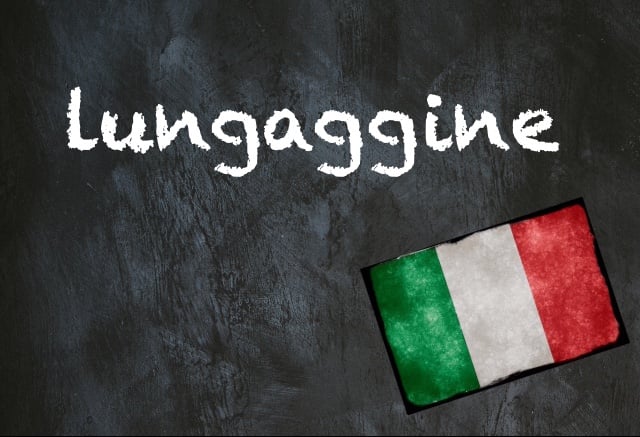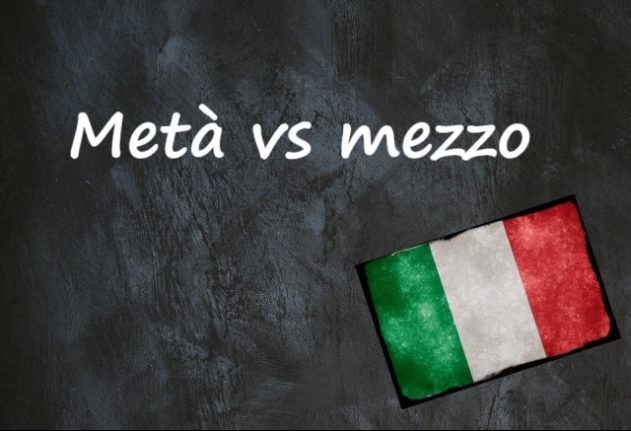Anyone who’s ever had to deal with Italian paperwork will feel this word in their soul: lungaggine, ‘slowness’ or ‘delay’. (Click here to hear it pronounced.)
It’s formed by taking the adjective lungo (‘long’ or ‘slow’) and adding the suffix ~aggine, which turns it into a noun while simultaneously adding a negative connotation.
You’ll see the same pattern in words like stupidaggine (‘stupidness’, from stupido) or sbadataggine (‘carelessness’, from sbadato).
And while ~aggine works a lot like ~ness in English, it doesn’t create an abstract noun, describing the trait of stupidness or carelessness, so much as an instance of that trait: it’s more like an ‘act of stupidity’ or ‘act of carelessness’.
Lungaggini (plural), then, are exasperatingly lengthy things – like a particularly verbose speech, a self-indulgently slow film, or typically anything that occurs inside a local government office.
Indeed, you’re most likely to encounter it in the phrase lungaggini burocratiche: ‘bureaucratic delays’, or as you could put it, ‘red tape’.
Che lungaggine, questo discorso!
This speech is such a drag!
Lo SPID è un strumento utile per chi vuole evitare lungaggini burocratiche.
A digital ID is handy for anyone who wants to avoid red tape.

Do you have a favourite Italian word you’d like us to feature? If so, please email us with your suggestion.
Don’t miss any of our Italian words and expressions of the day: download our new app (available on Apple and Android) and then select the Italian Word of the Day in your Notification options via the User button.



 Please whitelist us to continue reading.
Please whitelist us to continue reading.
Member comments